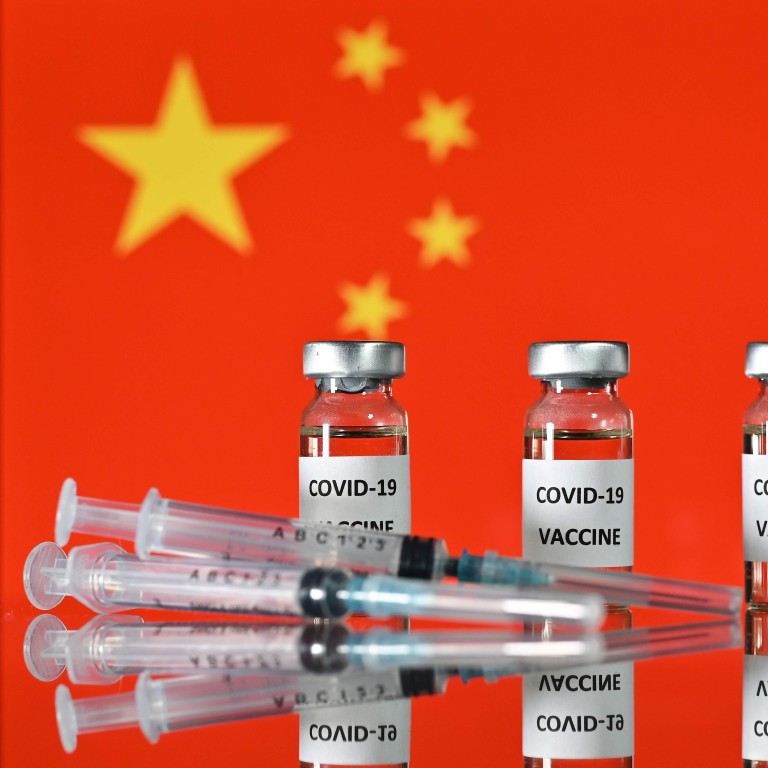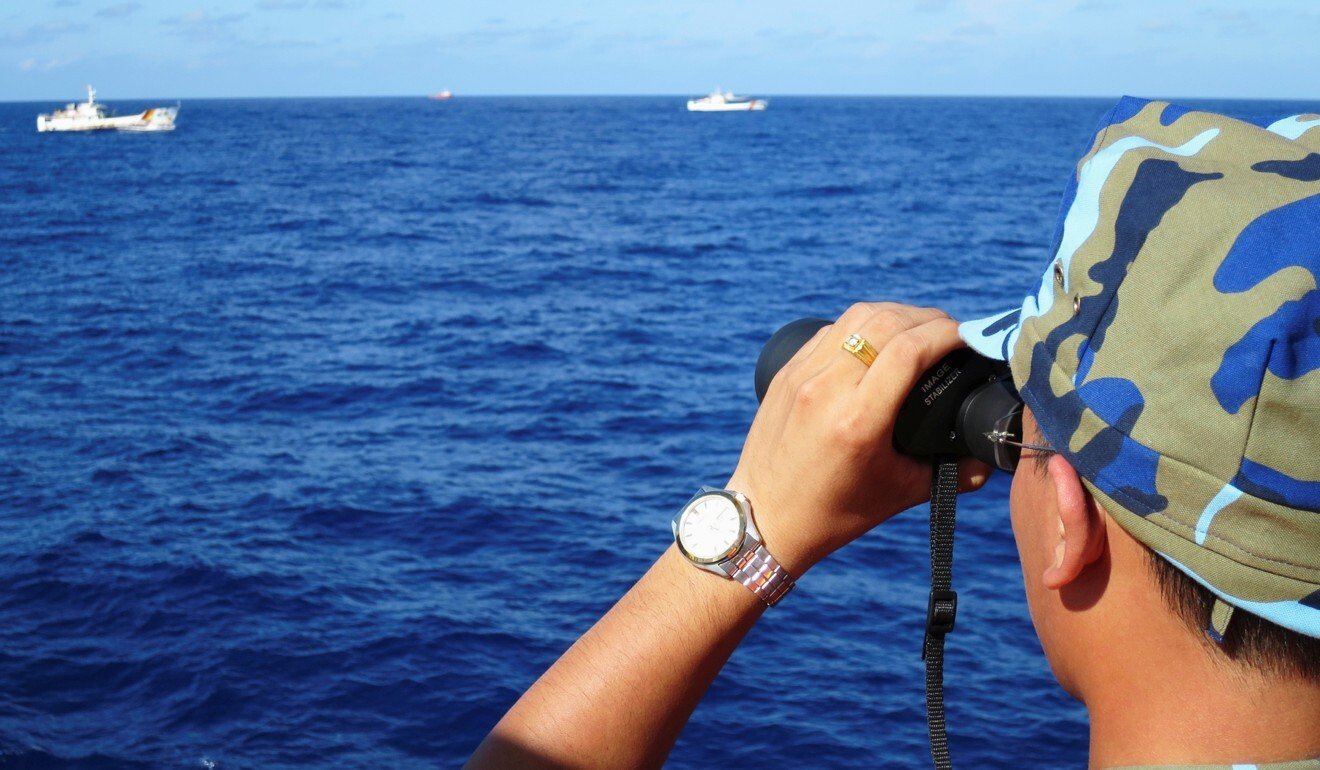
How Covid-19 helped China boost its soft power in mainland Southeast Asia
- The coronavirus pandemic provided Beijing a window of opportunity to boost its influence in countries such as Cambodia, Thailand and Myanmar
- However, there are concerns over China’s increasingly assertive behaviour in the region, with the likes of Vietnam remaining cautious
Public health diplomacy has become one of the key sources of China’s soft power projection, enhancing its image and influence, even though it is clear that China’s intentions are not completely altruistic, and it has other strategic intentions with regards to these measures.
While China was criticised – mainly in the US and Europe – for its lack of transparency in handling the pandemic early last year, Southeast Asian nations reacted positively to what they saw as Beijing’s decisive, swift and effective response to Covid-19, and they were among the first to offer political, diplomatic, and humanitarian aid to China.

06:18
SCMP Explains: What’s in a Covid-19 vaccine?
Covid-19 and China’s soft power
Economic resources, cultural assets and technological innovations are the main sources of China’s soft power. Southeast Asia has become the most fertile ground for China in crafting narratives to support its image building and its handling of the pandemic, given that these countries have high economic stakes in their relationship with China.
Coronavirus: BioNTech chooses Singapore as its Asia-Pacific vaccine hub
Southeast Asian leaders protested against the politicisation of the pandemic and called for international cooperation and solidarity involving the World Health Organization (WHO). At a special foreign ministers’ meeting on February 14 last year, the Association of Southeast Asian Nations (Asean) expressed “full confidence in China’s abilities to succeed in overcoming the epidemic”.
China designed a humanitarian plan to gain a geopolitical advantage, and has managed to transform the pandemic into a strategic opportunity to assert its leadership role and expand its geopolitical influence. Health diplomacy has become an important tool to project China’s image as a responsible and benign global power.
According to a survey on Asean perception carried out by the ISEAS-Yusof Ishak Institute, China is seen as having provided the most assistance to the region during the pandemic – but its assertive behaviour in the South China Sea, and the perceived risks stemming from overreliance on Beijing, affected China’s soft power status and saw its overall image in Southeast Asia decline slightly last year.
China’s Covid-19 assistance
China has played a critical role in offering medical information and supplies such as PPE (personal protective equipment), face masks and test kits, and deploying medical teams to Southeast Asian countries to combat the pandemic; some have called this assistance “face mask diplomacy” or “Covid-19 diplomacy”. Overall, Beijing has harvested significant political leverage from this in the region.
China’s first international Covid-19 assistance was offered to Cambodia in March last year via sending an anti-epidemic team and medical supplies including test kits. Later that month, China donated medical supplies and PPE to Vietnam and Thailand, while April saw a Chinese medical team and supplies arrive in Vietnam and Thailand. There were a few more rounds of Chinese assistance after that, particularly to Cambodia, Laos and Myanmar.
China’s Covid-19 assistance has been integrated into the narrative on the country’s grand vision of building a community with a shared future.
Why mRNA Covid-19 vaccines like Pfizer’s jab should be part of a long-term public health strategy
Chinese companies also provided financial assistance to the region. The Alibaba Foundation, Jack Ma Foundation, and Huawei launched global campaigns to provide medical assistance. Alibaba owns the South China Morning Post.
At the national level, Chinese companies that had invested in mainland Southeast Asia also donated resources to support national governments. In Myanmar, for instance, China’s State Power Investment, Pengxin, Hengyi, Citic Group, and China Communication Constructions donated medical supplies worth about US$2 million. Chinese NGOs also joined Beijing’s mission in offering humanitarian assistance to regional countries; last May, Blue Sky Rescue Team sent a team of 10 volunteers and donated medical supplies to Cambodia to help fight the pandemic.
China’s health diplomacy has been boosted by its information and communication strategy. The Chinese embassies, state-owned media, and think tanks have coordinated in structurally advancing the country’s Covid-19 diplomacy.

Reactions from mainland Southeast Asia
From the Chinese perspective, in terms of strategic trust and partnership, Cambodia and Laos are in the first tier, Myanmar and Thailand in the second, and Vietnam in the third. Cambodia and Laos are staunch supporters of China’s regional initiatives such as the Belt and Road Initiative and Lancang-Mekong Cooperation (LMC), while Myanmar and Thailand are somewhat more cautious towards Beijing.
Vietnam is very cautious of China’s intentions in the region, and has, for instance, shown a degree of resistance to the belt and road plan and opposed China’s proposal to form a regional secretariat for the LMC.
In the wake of the Covid-19 outbreak early last year, Cambodia did not impose any restrictions on travellers from China. Prime Minister Hun Sen even planned to visit Wuhan, the epicentre of the pandemic; but due to high health risks, he could only visit Beijing on February 5. During that visit, he met President Xi Jinping to show support to the Chinese government and people in the fight against the pandemic.
The Laos government greatly appreciated China’s Covid-19 assistance such as information sharing, capacity building, and the provision of medical supplies. Then president Bounnhang Vorachith said China’s assistance reflected the “time-honoured close friendship” between the two and “vividly demonstrates the spirit of the Laos-China community with a shared future”.
Then Myanmar president U Win Myint also expressed his appreciation of China’s assistance in the fight against the pandemic, and articulated his confidence in the leadership of the Chinese government in controlling the pandemic.
While government leaders praised China’s assistance, some local analysts, however, raised concerns over the increasing influence of China in the country. U Maw Htun Aung, Myanmar country manager of the Natural Resource Governance Institute, said Chinese humanitarian assistance aimed to foster China’s influence in the country, while Chinese companies tried to assure political support and enhance their public image.
“China is seeking both political and economic gain by promising economic support and delivering aid to Myanmar in a time of crisis. They know that Myanmar needs both,” he added.
Thailand-China bilateral relations emerged stronger during the pandemic. During a phone conversation with a Chinese diplomat in Bangkok in March last year, Thai Prime Minister Prayuth Chan-ocha said “bilateral ties will emerge even stronger in this joint campaign against the virus”.
Why Singapore moved to 21-day hotel quarantine – and a look at the countries with the longest, shortest and ‘most relaxing’ self-isolation requirements
In January, Vietnamese Prime Minister Nguyen Xuan Phuc praised China’s fight against the pandemic at home and abroad, but while Hanoi and Beijing have forged cooperation on Covid-19, deep distrust remains. A Vietnamese government official reportedly said “the Chinese government won’t give out accurate numbers, so we can’t simply accept what they tell us”. The pandemic has accentuated the competition between Vietnam and China, from sovereignty disagreements in the South China Sea to economic disputes.

Overall, however, China’s efforts to promote vaccine multilateralism since late last year have been applauded. To some analysts, China’s vaccine diplomacy aims to “increase China’s global influence and iron out … geopolitical issues” or “advance its regional agenda, particularly on sensitive issues such as its claims in the South China Sea”.
Utilising a window of opportunity
China has transformed the Covid-19 crisis into a window of opportunity to boost its soft power through sharing information and knowledge, providing medical supplies, deploying medical teams, and providing vaccines. But while its geopolitical influence has increased in mainland Southeast Asia in tandem with its pandemic-related efforts being applauded, there are some concerns regarding Beijing’s strategic intentions.
Although China is generally regarded as the most influential economic power in the region, its growing assertive or even dominant behaviour will produce a backflow to its goodwill diplomacy and soft-power projection.
Chheang Vannarith is Visiting Fellow at ISEAS-Yusof Ishak Institute, and President of the Asian Vision Institute, an independent think tank based in Phnom Penh, Cambodia. This article first appeared in the publication ISEAS Perspective 2021/66, titled Fighting Covid-19: China’s Soft Power Opportunities in Mainland Southeast Asia.

